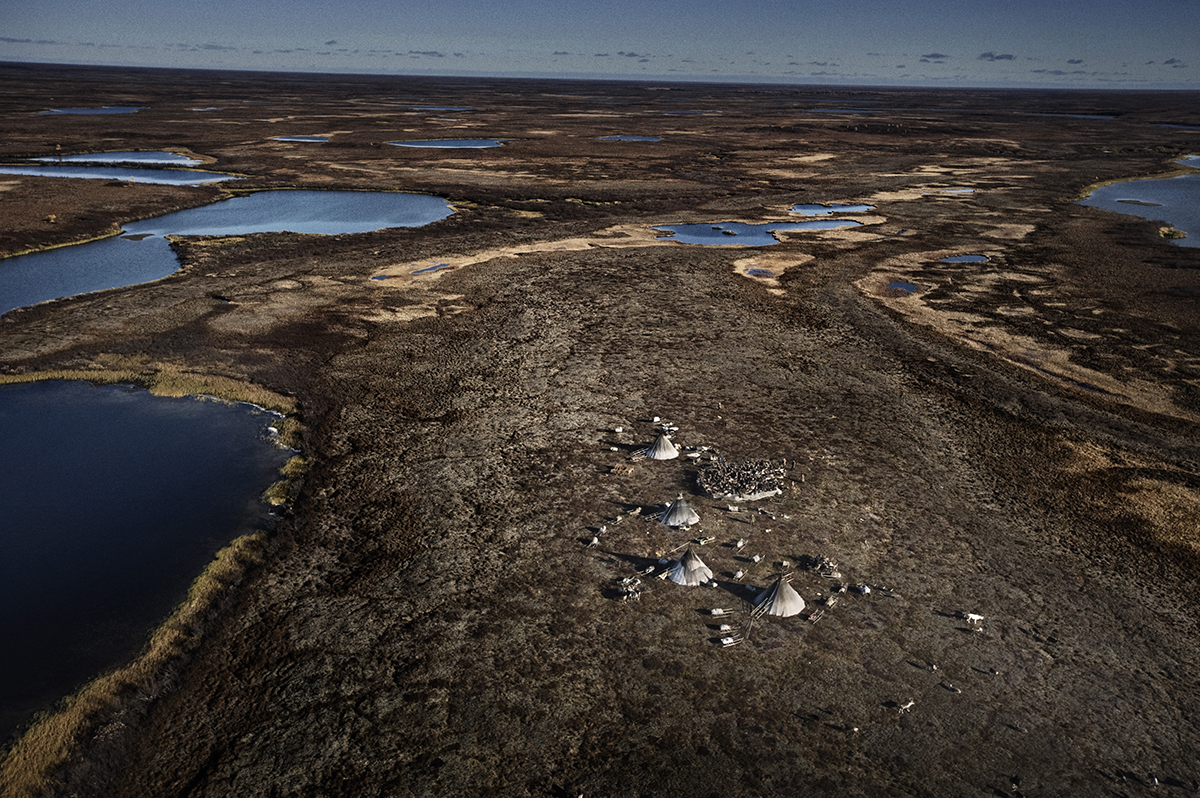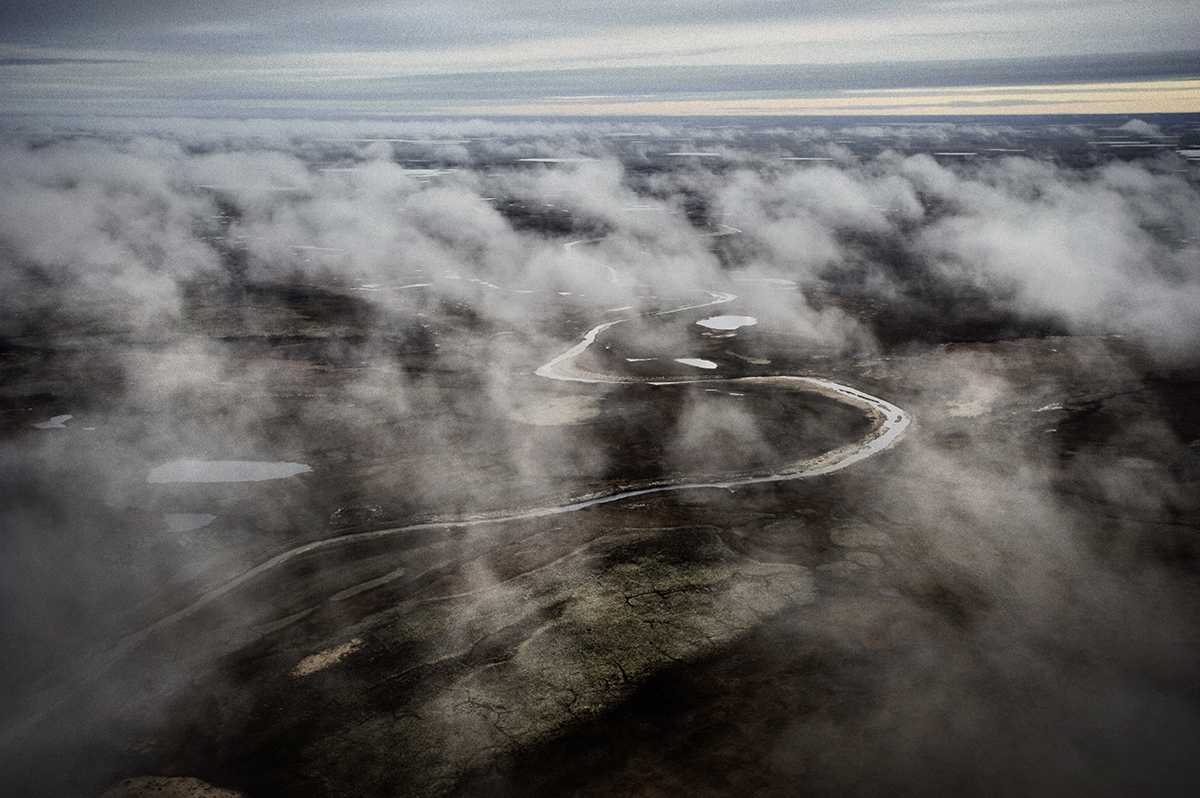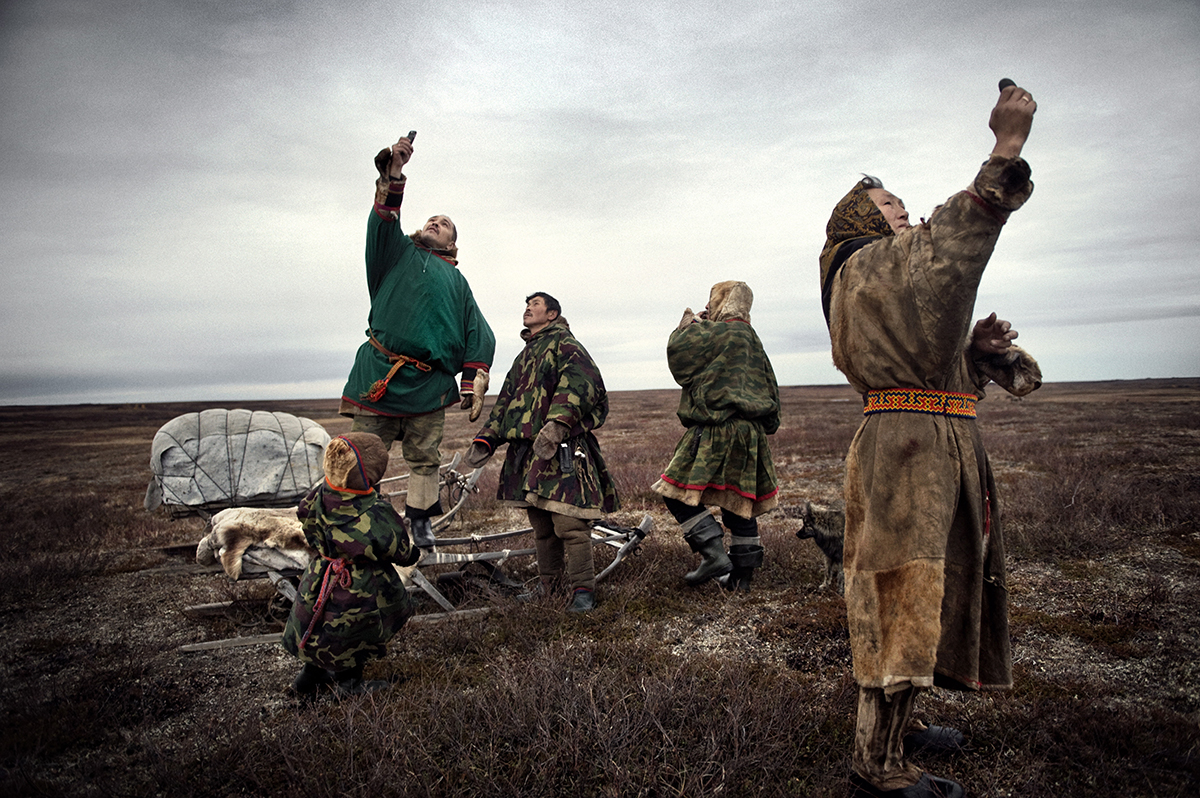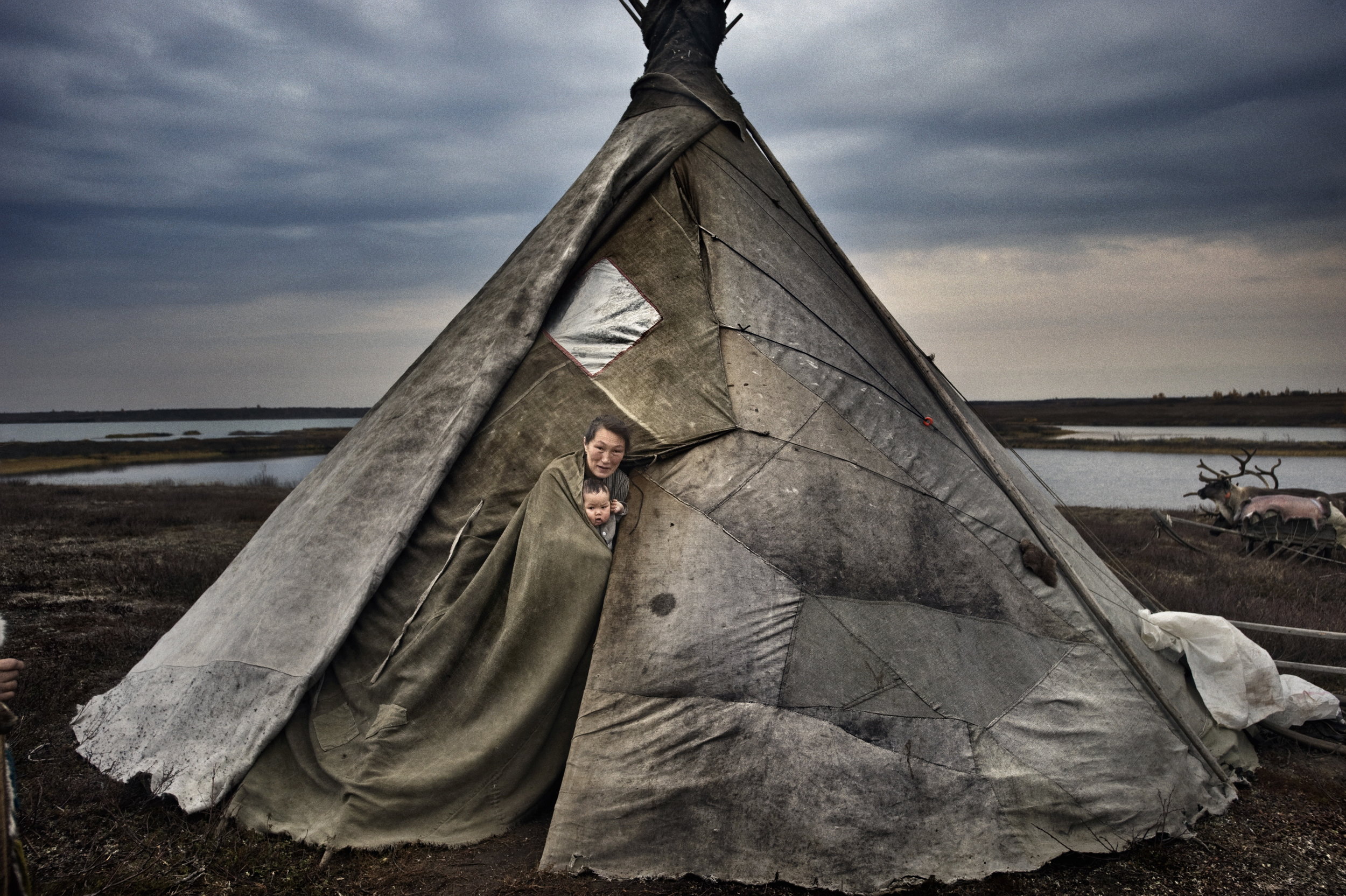Yamal
by yuri kozyrev
Russia, Yamal, October 2009, Aerial view of Yamal peninsula. It is one of the world's last great wildernesses, a 435-mile long peninsula of lakes and squelching tundra stretching deep into the Arctic Ocean.
It is one of the world’s last great wildernesses, a 435-mile long peninsula of lakes and squelching tundra stretching deep into the Arctic Ocean. For 1,000 years the indigenous Nenets people have migrated along the Yamal peninsula. In summer they wander northwards, taking their reindeer with them, across a landscape of boggy ponds, rhododendron-like shrubs and wind-blasted birch trees. In winter they return southwards. But this remote region of north-west Siberia is now under heavy threat from global warming. Traditionally the Nenets travel across the frozen Ob River in November and set up camp in the southern forests around Nadym.
These days, though, this annual winter pilgrimage is delayed. Last year the Nenets, together with many thousands of reindeer, had to wait until late December when the ice was finally thick enough to cross. “Our reindeer were hungry. There wasn’t enough pasture,” Jakov Japtik, a Nenets reindeer herder, said. “The snow is melting sooner, quicker and faster than before. In spring it’s difficult for the reindeer to pull the sledges. They get tired,” Japtik added, speaking in his camp 25kms from Yar-Sale, the capital of Russia’s Arctic Yamal-Nenets district.
Russia, Yamal, October 2009, A Nenets reindeer herder is rounding up his reindeer.
Japtik lives on the tundra in a reindeer-skin tent or chum (ital) with his wife, mother, and three-year-old nephew Albert.Here in one of the most remote parts of the planet there are clear signs the environment is under strain. Last year the Nenets arrived at a regular summer camping spot and discovered that half of their lake had disappeared. It had drained away after a landslide. While landslides can occur naturally, scientists say there is unmistakable evidence that Yamal’s ancient permafrost is melting. The Nenets report other curious changes – fewer mosquitoes and a puzzling increase in gadflies.”It’s an indication of the global warming process, like the opening of the Arctic waters for shipping this summer,” says Vladimir Tchouprov,Greenpeace Russia’s energy unit head. The melting of Russia’s permafrost could have catastrophic results for the world, Tchouprov says, by releasing billions of tonnes of carbon dioxide and the potent greenhouse gas methane, that was previously trapped in frozen soil.
The melting of Russia’s permafrost could have catastrophic results for the world
Russia, Yamal, October 2009, Aerial view of Yamal peninsula. It is one of the world's last great wildernesses, a 435-mile long peninsula of lakes and squelching tundra stretching deep into the Arctic Ocean.
However, many Russians working in the Arctic are unconvinced. “It’s rubbish. It’s invented. People who spend too long sitting at home have made up climate change,” Alexander Chikmaryov, who runs a remote weather station on the Yamal peninsula, said, standing in his dilapidated station strewn with rusting engine parts and a broken-down wind turbine.Chikmaryov lives in Marresale, a bitterly cold outpost on the Yamal peninsula’s western coast overlooking the Kara Sea. In fact, Chikmaryov’s own data suggests that global warming is a real problem here too. In 2008 the ice was 164cm thick; this year it is 117cm. Winter temperatures have gone up too – from lows of -50C in 1914, when the station was founded, to -40C today. Every year large chunks of the coast on which the station is precariously perched fall into the sea. On the beach there is a jagged layer of thawing permafrost.
Russia, Yamal, October 2009, Vasilyi Ivanovich, the elder of the tribe.
Russia, Yamal, October 2009, The family slaughters reindeer every couple of weeks, eating it raw and with pasta.
The Yamal peninsula also contains the biggest gas reserves on the planet. Campaigners fear that large-scale gas exploration could ruin the peninsula’s delicate Arctic ecology. Gazprom, Russia’s state energy giant, is currently building several ambitious infrastructure projects across the tundra – a new 572km railway line, a gas pipeline, and several bridges.









